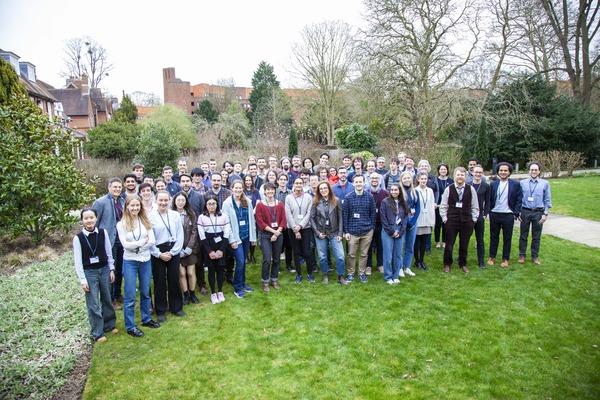
Submitted by Selen Etingü on Wed, 02/04/2025 - 09:34
The Annual Science Day at Robinson College concluded on Friday 21st March after a day of diverse and stimulating presentations by LCLU members from more than ten Cambridge University departments. The LCLU represents an opportunity for researchers speaking different ‘academic languages’ to answer key questions about Life in the Universe; our Annual Science Day is a critical event in this respect, where members are able to gather, communicate and disseminate their findings annually. This year we had a fantastic turnout from 40 student members, with talks and posters encompassing a wide range of multidisciplinary research from PhD students, Postdocs and University Lecturers. Keynote speeches were delivered by Professor Tim Lewens on Universal Darwinism, and Professor Alex Archibald on Atmospheric Biosignatures.
The day was broadly structured into four sessions. After the opening keynote speech, the first session covered the metaphysical significance of life in the universe. The second session explored the observation and study of life from afar, initially through the presentation of new and advanced telescope systems, and then new findings in method development to detect sub-Neptune exoplanets and characterise their atmospheres. The session concluded with talks on the reliability of biosignatures as evidence for life, and how the emergence of land plants on Earth may produce knock-on effects that are comparable to other rocky worlds.
Our third session focussed on larger planets, planet formation, impact processes and comets, kicking off with a comparative study between Earth and Mars (and its meteorites!) to assess respective melting temperatures and mantle compositions. We then moved on to how giant impacts may cause atmospheric loss, followed by presentations encompassing comets, their meteoritic analogues, and the likelihood that hydrogen cyanide would survive post-cometary impact with Earth. Our final session invoked a biological, chemical, isotopic and physical lens by which to assess the origins of life, with two presentations on the study of Ediacaran fossils using a combination of field, laboratory and modelling approaches. Later presentations discussed carbon isotopic fractionation, further studies on hydrogen cyanide, and a fascinating insight into the racemisation of organic molecules on magnetic surfaces.
Throughout the day, three dedicated coffee and lunch breaks provided the opportunity for students and postdocs to discuss their poster presentations with fellow colleagues and university lecturers. This included around a dozen master’s students currently participating in the newly launched Planetary Science and Life in the Universe MPhil program. Polling for best presentations was undertaken throughout the day with Skyla White winning Best Poster, and Tereza Constantinou winning best presentation. A special mention to Will McMahon, who despite some brief technical difficulties, delivered a great presentation without slides! Congratulations to all three.
Finally, thanks are extended to Robinson College for hosting the event. We hope to see you all for our Annual Science Day in 2026!
Review by Ross Findlay.
